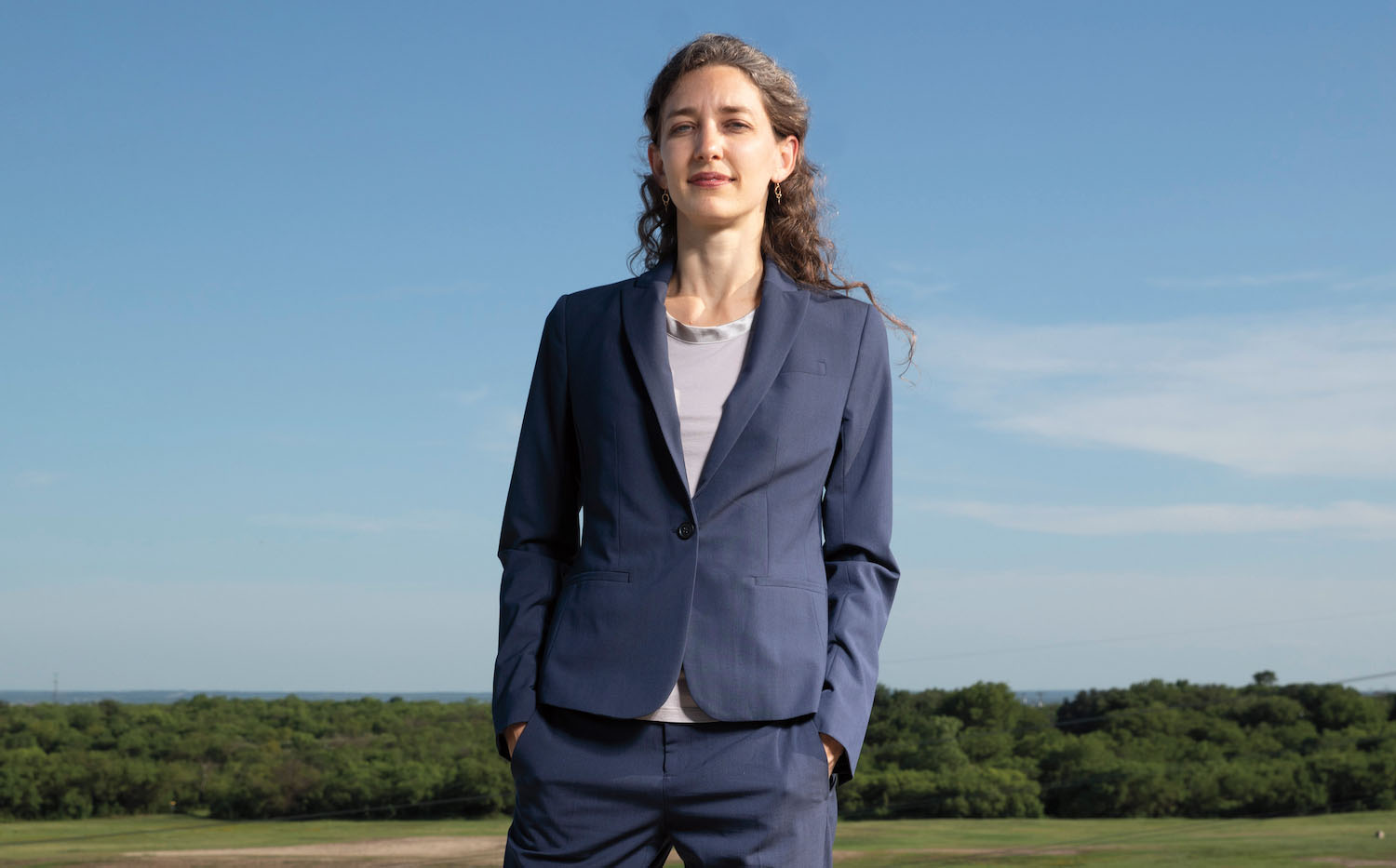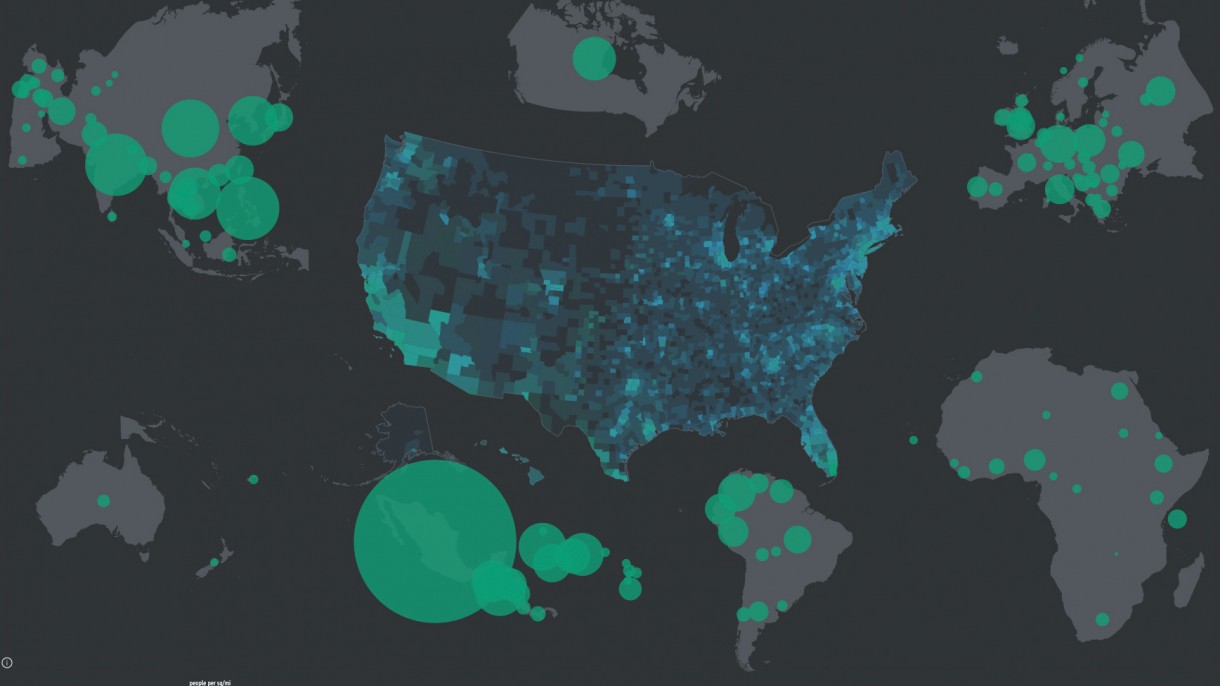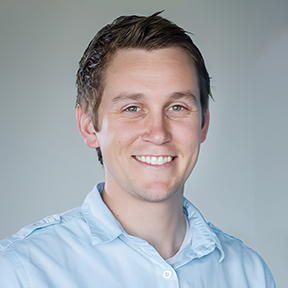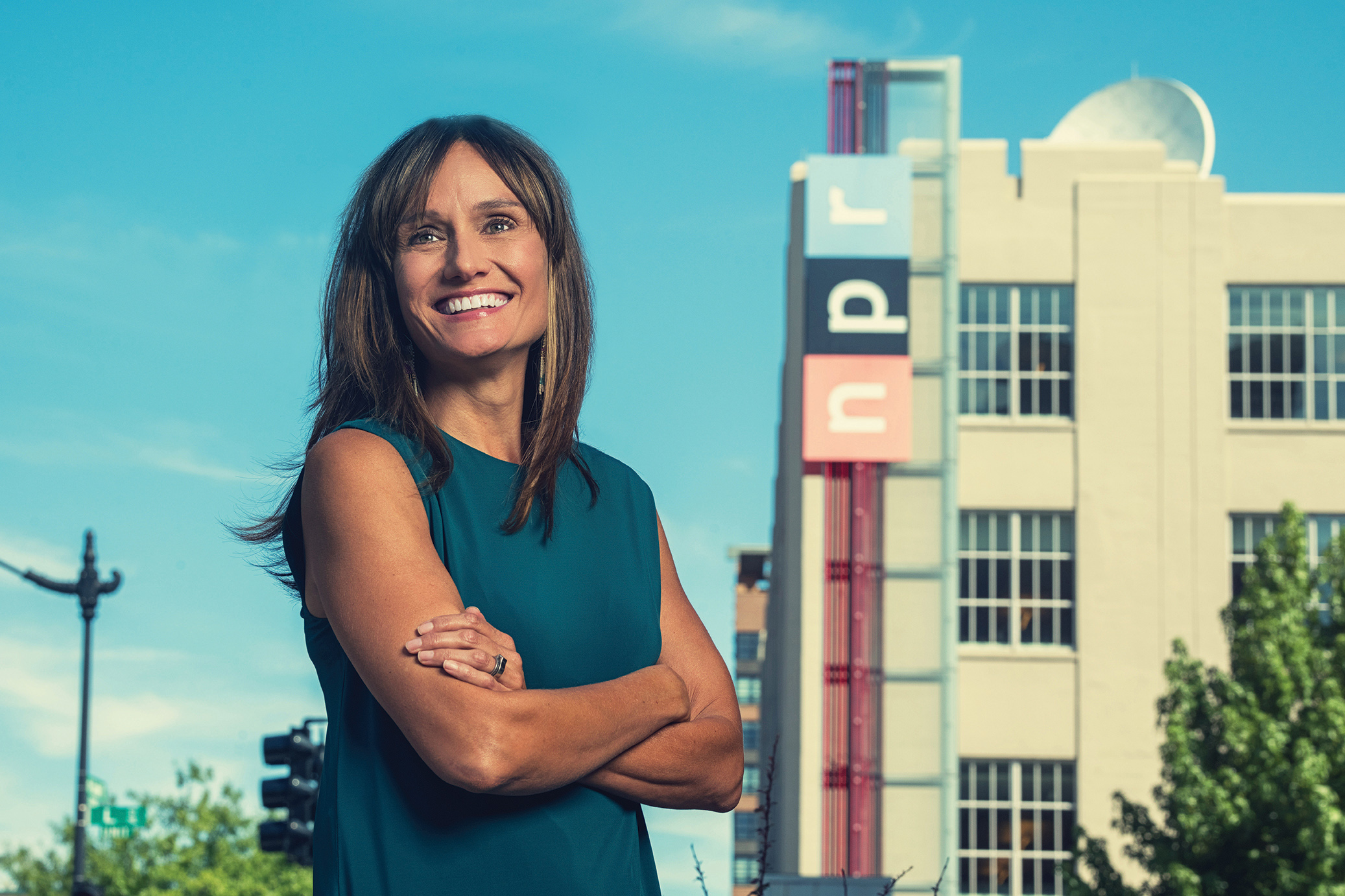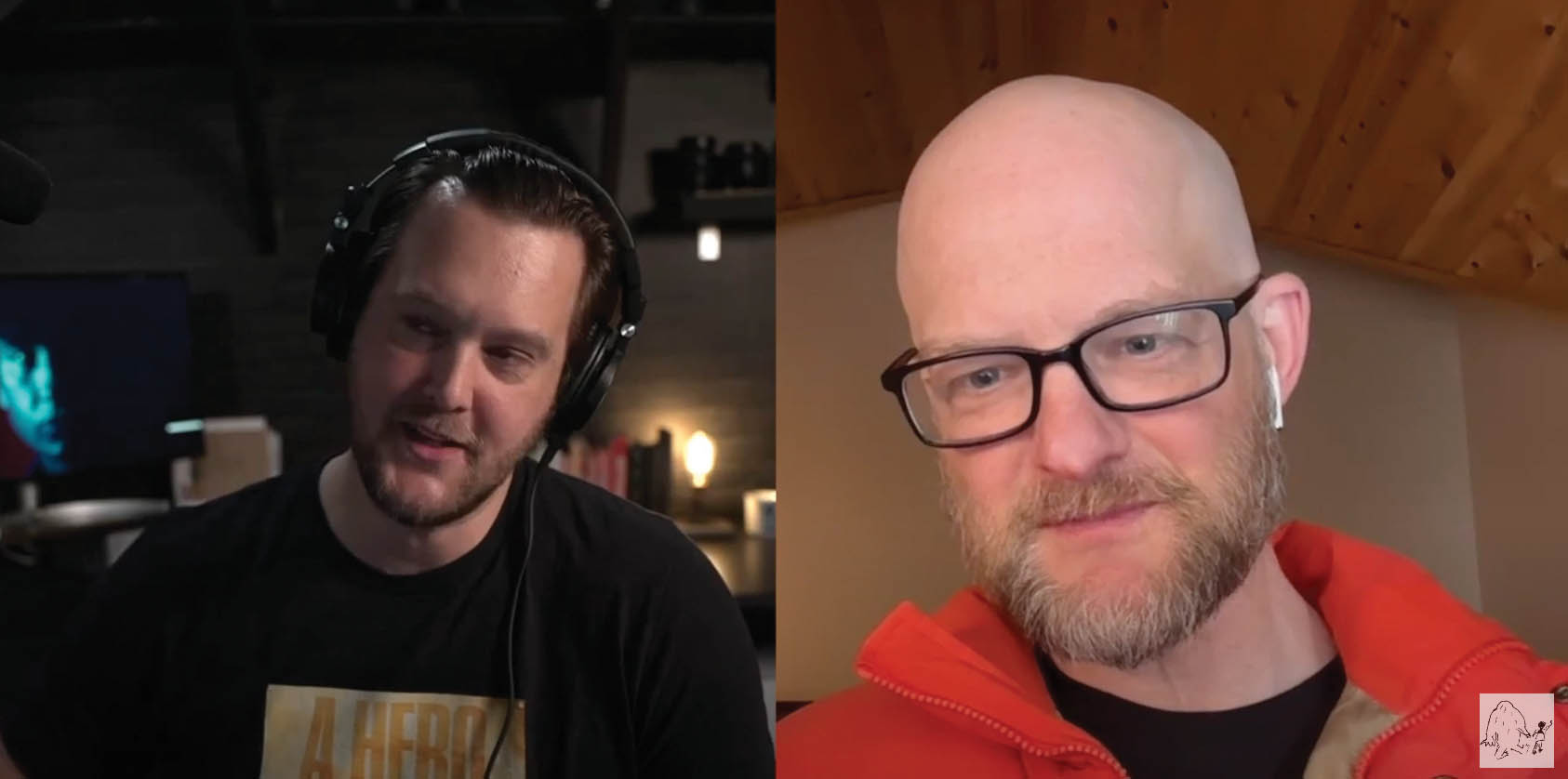The South Texas Detention Complex is a little over an hour from the Migrant Center for Human Rights office in San Antonio, where Sara Ramey ’05 is executive director.
She makes the drive once, sometimes twice weekly, crossing the gridded sprawl of the state’s second-largest city to spare rural development, where the four-lane interstate elbows around the small, mostly Hispanic, farming community of Pearsall. The sky is so big here, the land so flat, the sun so relentless. Eighteen-wheelers going to and coming from Mexico pass in both directions. It’s about 100 miles from Pearsall to the border. Once, Sara saw a group of riders on horseback traveling along the edge of the highway to the San Antonio Rodeo. Some days, she listens to recorded court proceedings during the drive. Some days, she tunes to 104.5 Latino Hits or a standard top-40 station. Some days, with a buzz of thoughts about the work ahead, she just needs the quiet.
Sara founded the Migrant Center for Human Rights, a nonprofit organization, in 2017 to provide free and low-cost legal services to detained migrants, particularly those seeking asylum in the United States. She isn’t just the founder and executive director, she’s the organization’s sole permanent, full-time staff person. Working with about 50 migrants simultaneously from all over the globe, Sara’s organization has put her at the heart of the complex world of immigration and border politics.
Under federal and international law, any individual has the right to seek asylum in another country. In order to qualify for asylum, an applicant must prove that they fear persecution at home, and that this persecution is based on the applicant’s race, religion, nationality, political opinion, or social group.
The majority of people detained at the South Texas Detention Complex, Sara explains, want to apply for asylum or are already in the process. Some are undocumented immigrants who had been living in the United States before being picked up by authorities. Most of the Migrant Center’s clients are people who voluntarily presented themselves at the border and asked for protection or were otherwise apprehended at the border. All of them are facing deportation.
It’s typically early afternoon when Sara arrives at the South Texas facility. She pulls into the visitor parking area and, after showing identification and an appointment list to a uniformed guard, she settles into a chair and waits until she’s called by a guard and led into a small, concrete block visitation room.
Sprawled out over six flat, sunbaked acres, the detainment center holds up to 1,900 people and is run by the Geo Group—the nation’s largest private prison company. Sara will be here for hours meeting with clients; the dinner shift comes and goes at the center. Her consultations last 15 to 30 minutes, unless she’s working with someone on an asylum declaration, preparing them for an interview or court appearance, or writing up an appeal. In that case, the meeting might last up to three hours. She is, in many ways, the lifeline these migrants have to the outside world, and she serves as their guide to a complex legal system in the United States.
Sara sees critical problems in this system, namely that the international laws that govern asylum, which were formed in the wake of World War II and haven’t been updated in more than half a century, are out of date. “They’re not responsive to the kinds of protection people are seeking today,” she says. Many of her clients are fleeing violence—including gang and domestic violence—that present credible threats but don’t fit neatly into the law’s categories.
